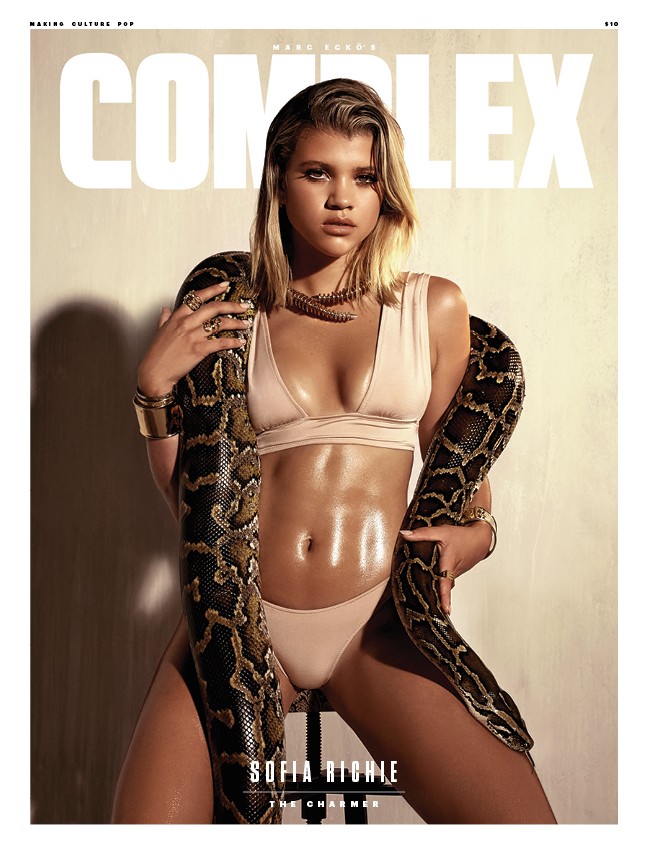Family BusinessPosted in Articles, Arts, Interviews, Media Archive, United States on 2016-12-07 02:24Z by Steven |
Complex
December 2016/January 2017
Written by Rebecca Haithcoat
Photography by Sasha Samsonova
Sofia Richie has been known to the world as Lionel Richie’s daughter, Nicole Richie’s half-sister, and Justin Bieber’s BAE. Now, the aspiring model is ready to make her solo debut—Without Losing her Privacy.
Sorry—Sofia Richie does not want to talk about Justin Bieber.
Sitting in an outdoor booth at the Beverly Hills Hotel’s luxurious Polo Lounge, Richie’s manager, Alex Avant, is setting the terms of her impending interview. Hollywood handlers are typically overprotective, but his chaperoning will prove to be extra oppressive: He’s a longtime family friend and has been personally tasked by Richie’s father, Lionel, to take care of his baby.
Whatever Richie wants, she gets. And what she wants is no Bieber questions.
“There are just so many rumors and lies,” Avant says. He waves at Russell Simmons across the room.
Avant is told this interview is a great way to clear up those rumors and lies.
He shakes his head.
So, Sofia and Justin, are they still…?
He nods, then shakes his head, somehow confirming and denying at the same time. “Just no questions,” he says finally.
This is unfortunate, because at the present time, Sofia Richie, 18, is known for three things: her famous family (singer and father Lionel and former reality star/current fashion-plate sister Nicole), walking in Kanye West’s most recent Yeezy Season fashion show (the one whose casting call was for “multiracial women only”), and, yes, dating Bieber…
Read the entire interview here.







